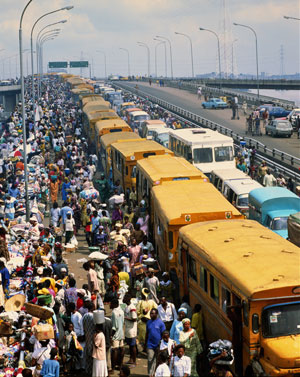Nigeria in Focus
Nigeria in Focus
Women Working Collectively for Change
Nigeria gained its independence from the United Kingdom in 1960. Since then, the country has lived through a series of corrupt governments and military coups. Given these unstable circumstances, Nigeria's women have had to work outside the system in order to get things done and ensure their rights.
Many Nigerian women have decided the most practical strategy for change is to work together with other women. For example, Yoruba women of Western Nigeria have made independent livings as traders for generations. Today, they exercise their power in women's market associations. They influence local public policy, and more recently, pool their money to support leaders who are accountable to their needs.
In northern Nigeria, many Muslim women of the Hausa or Fulani tribes still live under purdah. Confined to their homes, they are only allowed only to interact with male family members or other women. Still, they invoke the Islamic commitment to education by organizing to ensure their daughters' schooling.
In contrast, the Igbo community in Southern Nigeria traditionally employed a "dual-sex" system, in which men and women each managed their own affairs. Igbo women lost much of their power under colonial rule, but since independence, some of the old system is returning. Omus, or community women's leaders, have formed women's cooperatives that administer social services at local levels.
Nigeria's resourceful women are examples of what is possible in difficult political circumstances. Achieving formal political power is an ongoing challenge -- one that is on the horizon.


